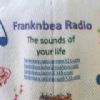|
ESL Forum:
Techniques and methods
in Language Teaching
Games, activities
and teaching ideas
Grammar and
Linguistics
Teaching material
Concerning
worksheets
Concerning
powerpoints
Concerning online
exercises
Make suggestions,
report errors
Ask for help
Message board
|
ESL forum >
Grammar and Linguistics > AE vs BE Business card
AE vs BE Business card
|

douglas

|
AE vs BE Business card
|
|
Hi all,
A recent post just made me wonder about a possible difference between British and US English that I hadn �t previously noticed.
In the USA we leave our "business card" (a small, wall�t card with our personal/contact information on it).
I have also heard these called "calling cards"
Could it be that they are also called "visiting cards" in British English?
Thanks,
Douglas |
14 Sep 2010
|
|
|
|

portugueseteacher

|
|
Hi, Douglas.
Visiting cards are the Be equivalent for Business Cards(AmE).
In both you can find the name of the company, the type of business(computer assistance, advertising,...), the name of the person, his/her role in the company(director, sales manager,...), the no of telephone, email contact.
Hope it helps!:-)
|
14 Sep 2010
|
|
|

portugueseteacher

|
|
Take a look at Lina -Ladybird �s first link.Here we have a lot of nice business cards/visiting cards for roleplays !They seem to be very useful!
Take care! |
14 Sep 2010
|
|
|

Lina Ladybird

|
|
Hey, Douglas! ;))
Actually, I do use both words interchangeably.
Check this:
BTW, I didn�t know that they�re also called "calling cards" in American English...
Best wishes - Silke
|
14 Sep 2010
|
|
|

franknbea

|
|
Hey Douglas,
Actually they haven �t been called visiting cards for sometime in the UK.
The only time the term is still used in in high society circles and even then it �s archaic.
"The visiting card, also known as a calling card first appeared in Europe in the 17th century and quickly became an indispensible tool of etiquette.
The visiting card is no longer the universal feature of upper middle class and upper class life that it once was in Europe and North America. Much more common is the business card"
Hence nobody in England says "here �s my visiting card." But "Here �s my card." or "here �s my business card."
Having said all this I probably moved in the wrong circles when living in England and therefore never witnessed anyone saying visiting card.  |
14 Sep 2010
|
|
|

joy2bill

|
|
The only time in my whole life (and that �s been a long time) when I have heard anyone use the expression "calling card" was my grandmother (born 1898!) who used to say,
"Oh no, the bird �s left its calling card." Translated this meant that a bird had shit on someone.
So I personally would never, never use anything other than business card.
Had to share this.  Cheers Joy |
14 Sep 2010
|
|
|

lshorton99

|
I �ve never heard visiting card either - British English (for once) appears to be the same as American English in that we use business cards! Of course, as Frank said - I may not move in the right circles!
Lindsey
|
14 Sep 2010
|
|
|

douglas

|
|
Thanks all. Your answers pretty much confirm what I suspected. I only use "business card" and have heard "calling card" used more often in the way Joy explained it.
The German word for business card is Visitenkarte which directly translates to "visiting card" so I always assumed the term was just a mistake in translation. I just wanted to confirm my suspicions.
Thanks!
Douglas |
14 Sep 2010
|
|
|

SueThom

|
I may be revealing my age here, but when I was young there were still vestiges of calling cards about where I lived.
A calling card at that time was similar to a business card, but it was on very nice stock and was engraved--in a formal style of cursive type, usually--with just a person �s full name.
The idea was that when you went to someone �s home and they weren �t there, you left a calling card with the butler (or whatever) to let the person know you �d been by. (Developed in days before email, phones, etc.) Or you �d leave them at a large reception or tea for the same reason, particularly if there had been no formal receiving line.
I had been given to believe that business cards were later developed from calling cards.
|
14 Sep 2010
|
|
|